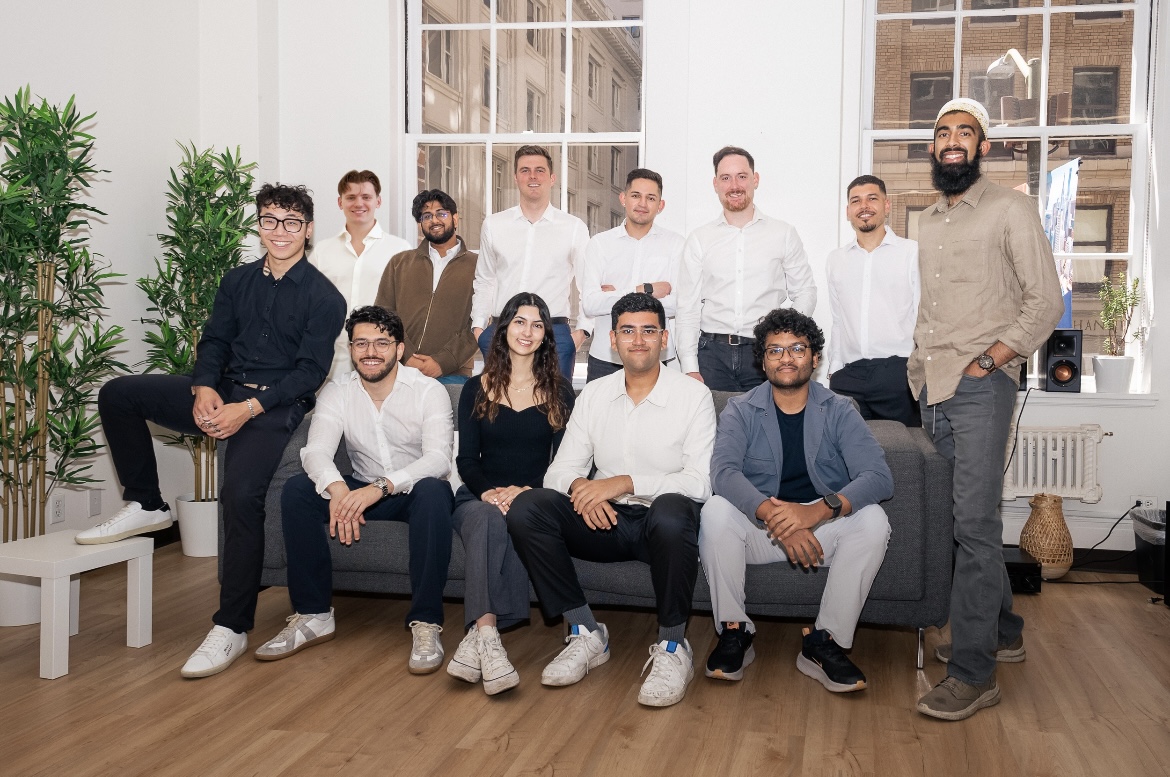Harsh and Selin Kocalar did not plan to raise the series A so soon. Their AI —evito -trigger, Digwho announced in January a $ 3 million seed round grew rapidly and signed customers with a steady clip.
Then the incoming interest began to move, Coo Kocalar told Techcrunch.
Delve, who automated the regulation of AI agents, ended up on the field of several time -time sheets, eventually closing $ 32 million in a $ 300 million value. The round was led by Insight Partners, who took most of the round by participating in Fortune 500 from CISO.
Insight has been “amazing to work, and we felt they were a real longtime partner for us,” said Coo.
Delve’s new appreciation represents about 10x jumping from his previous round. Similarly, its clientele has grown from 100 companies that it reported in January to over 500, many of them rapidly growing AI-startup companies, such as the recently struck AI Unicorn Lovely, Bland and WISPR.
And while a 2-year-old company consisting of MIT, Stanford and Berkeley’s AI researchers has seemed to be apparently struck by gold to remove hundreds of hours of manual processes, its story started a lot differently.
Kaushik and Kocalar met as classmates during the MIT during the year. Both had deep interest in AI and health technology. Kaushik had already scaled for thousands of users of the Covid diagnostics system during the pandemic.
TechCrunch event
San Francisco
And
27.-29. October 2025
In 2023, they started working with an AI-powered medical author to help doctors deal with the patient’s documentation. However, the processing of sensitive health information meant that they quickly encountered the expensive and time -consuming world of HIPAA’s conformity.
Instead of continuing medical writing, they started building tools to help other companies get Hipa-compatible faster and cheaper. Turn got the team’s y combination last year And helped them to raise their seed tour from the general catalytic converter, the Fandersclub, the Soma Capital and the others. The founders fell in the second year in 2023.
What started with HIPAA quickly expanded. “As our client base grew, they began to ask for support with other frames: SOC 2, PCI, GDPR, ISO, basically the entire alphabet, which is a conformity,” Kocalar said.
Conformity paperwork may be essential from launching products to the closure of acquisitions. But instead of growth, its manual work can become a bottleneck.
“Conformity frameworks are standardized. Companies are not,” says CEO Kaushik. “This mismatch is because traditional software breaks down and teams fall back into channel -based workflows over email, loose and shared position.”
Delve replaces this busy work with AI agents that operate in the background (after integration with customer tools), such as internal group members. These representatives collect evidence, write reports, update inspection logs, and monitor the configuration changes between fragmented systems, automating compliance workflows in real time.
According to Kocallar, conformity is just a wedge for a wider back operation. In the long run, AI-startup wants to automate the other billion-hour work-restoration expands to adjacent areas such as cyber security, risk and internal administration.
The interest of Insight partners reflects this progress plan.
“As the conformity affects all parts of the company’s operations, from scaling to close the client fund, modernization of this function to modernize the entire organization,” said Prave, CEO of Insight, Akkiraju. “It makes Delve’s approach so important.”
Still, startup is not without competition. There have been several AI companies with agents to automate business workflows. In addition, large AI laboratories, such as Openai, release general-purpose substances capable of performing complex tasks.
However, Kocalar says that these development is validation, not a threat, Delve’s business. He refers to the depth of the company’s domain, unlike more general agents.
“Our position to improve as AI progresses and laboratories spread more advanced agent techniques. But what really separates us is deep, domain -specific information we build on the platform,” he said. “Conformity changes whenever new regulations are created and existing, companies interpret them in different ways. There Delve stands out.”
